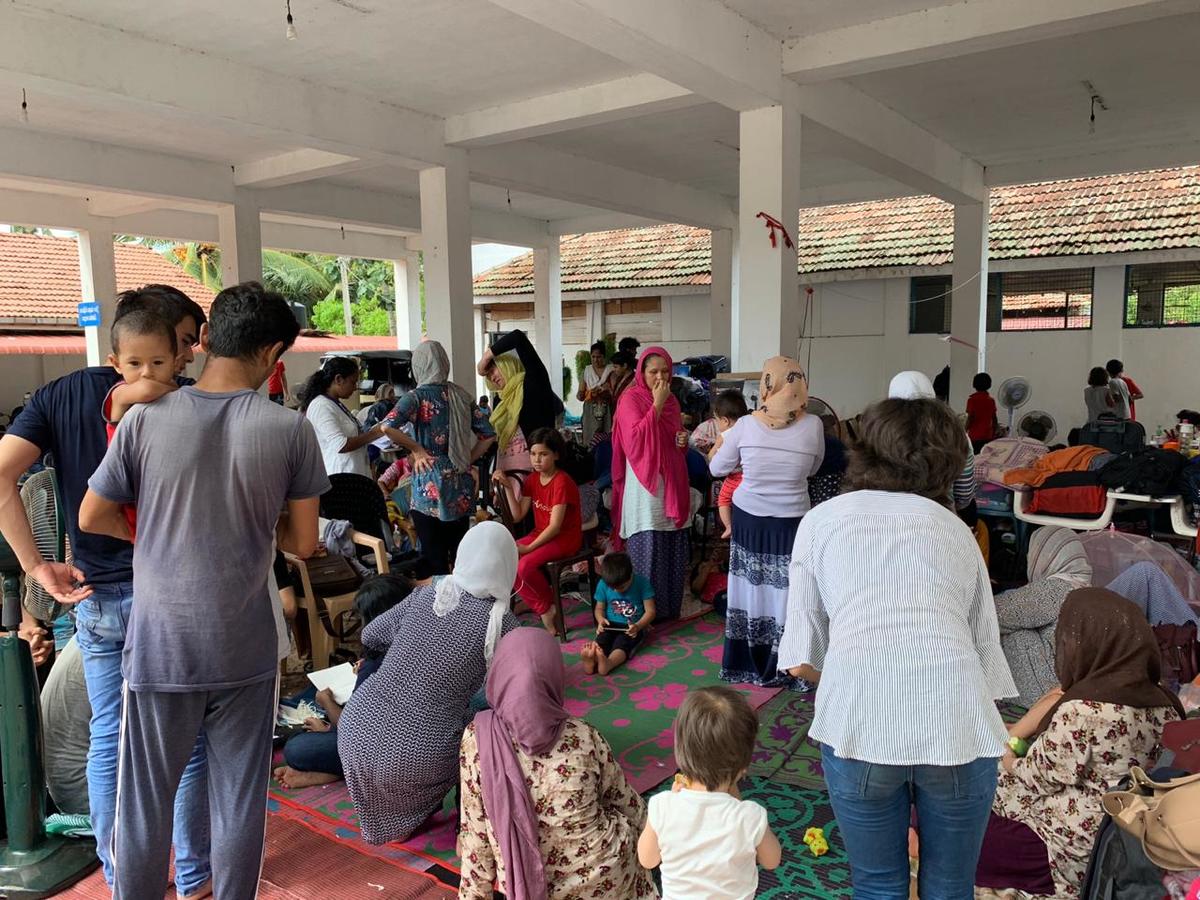Sri Lanka: 40,000 more have fled fighting in east over past week
Sri Lanka: 40,000 more have fled fighting in east over past week
More than 40,000 civilians have fled fierce fighting in Sri Lanka's east over the past week, pushing to an estimated 127,000 the number of displaced within the affected district of Batticaloa.
The recent movement is taking place from LTTE-held areas in West Batticaloa, mainly to government-controlled areas of Kalawanchikudy and Aarayampathy in the southern part of the district.
As an initial response, UNHCR has already transported 2,500 plastic sheets and 1,925 family tents to be distributed among the affected population. We are coordinating with other agencies on the ground to carry out further relief operations.
The government, through local officials, has made an urgent appeal for immediate food assistance for at least the next four weeks. With existing displacement sites already overcrowded and continued difficulties in allocating land, we are concerned about the welfare of the displaced in the district. As fighting continues, more people may be forced to flee, and we have asked the government to step up efforts to meet the needs of the displaced.
At the same time, UNHCR and other agencies are monitoring the return of civilians from six divisions in Batticaloa to the Trincomalee district. The returns began yesterday. More than 300 people have already been transported to a transit centre in Killaveddi.
The Government of Sri Lanka has assured us that all return movements will be voluntary. However, interagency monitoring reports from Batticaloa indicate that heavy pressure has been applied on internally displaced people (IDPs) including local authority statements that assistance will be stopped if they stay in Batticaloa.
This pressure, coupled with security concerns in the sites for internally displaced people, has forced many IDPs to return to Trincomalee even though they have expressed serious reservations about the security situation in their areas of origin.
UNHCR is continuing to advocate for voluntary return, without undue pressure or duress. We have offered to accompany the process. UNHCR insists on removing the obstacles for return and we want to help prepare for conducive conditions for any return.
We are also concerned about the welfare of an estimated 10,000 internally displaced people in the grounds of Madu Church and surrounding areas in LTTE-controlled Mannar, in the northern part of Sri Lanka. The security situation in this area has deteriorated significantly in the last weeks and the LTTE has now issued instructions that all IDPs should be moved from the church grounds and has restricted humanitarian agencies' access to the site. Many of the IDPs there sought refuge in the church grounds for security reasons and in order to avoid forced recruitment by the LTTE.





